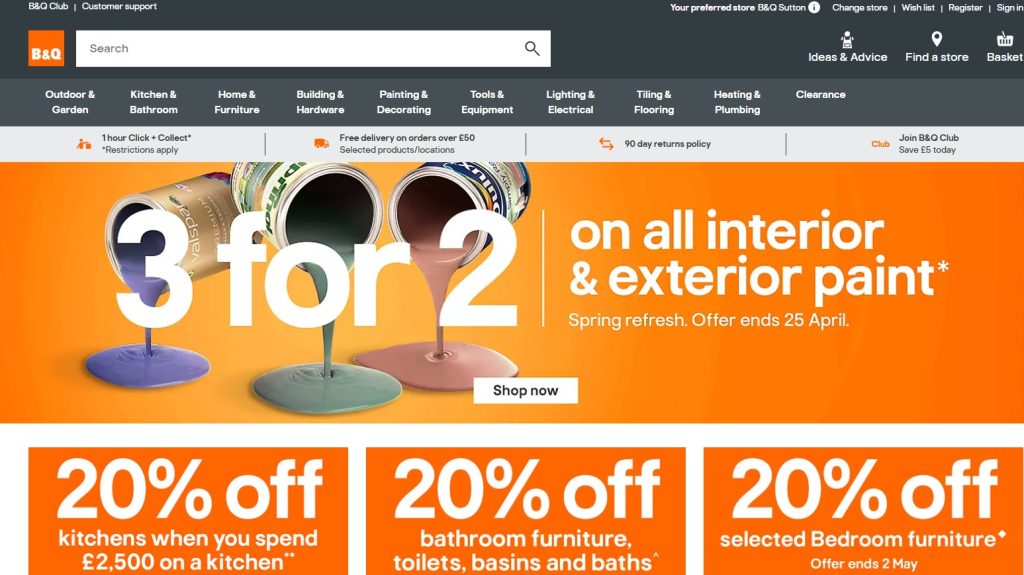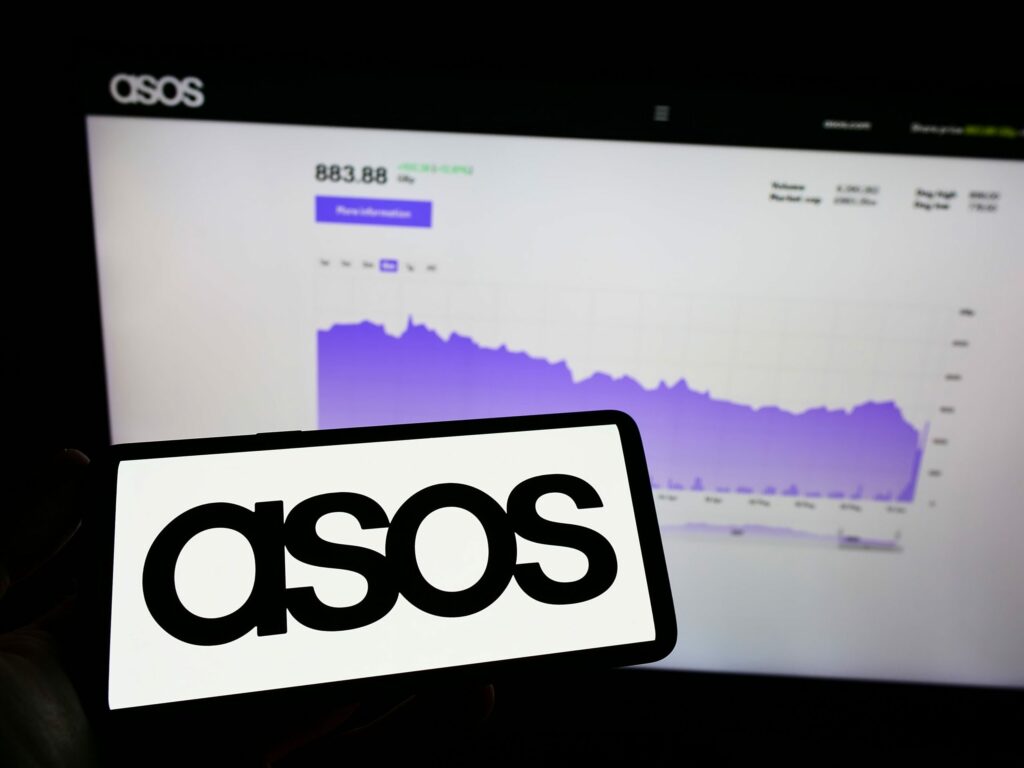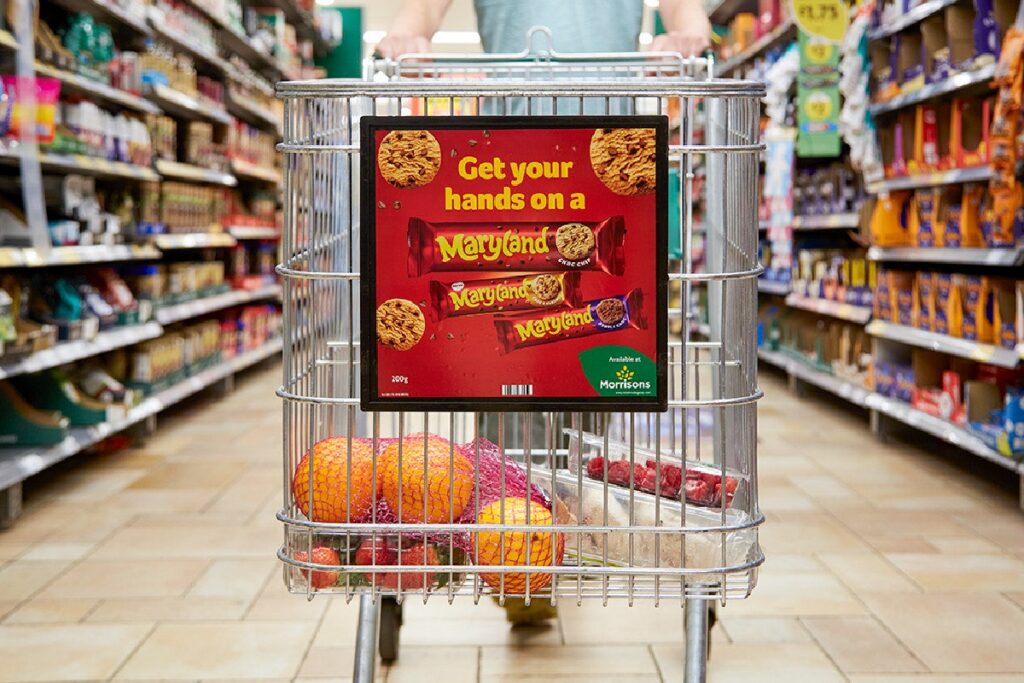Marketplaces are one of the fastest growing parts of retail and is increasingly how consumers are opting to shop online.
According to OC&C Strategy Consultants’ Trading Places report by 2025, online marketplaces will account for around 50% of overall online spend in what it terms “the largest fundamental shift in consumer spending since the emergence of ecommerce in the 1990s”.
The world of marketplaces is dominated by big established players such as Amazon and eBay, however, there are many marketplaces that sell a single category and serve a targeted customer that flock to such sites for their expertise and product variety in that one category.
Look at Etsy. The online marketplace is the go-to destination for handcrafted and vintage items.
Now high street retailers are getting in on the act and launching their own marketplaces to win further growth in online – which has surged in popularity across many retail sectors during the pandemic – with Superdrug, Yoox and B&Q venturing into this space in recent months.
Superdrug ecommerce director Matt Walburn says: “With the last two years completely changing how our customers shop, it’s our job as retailers to constantly be providing seamless ways for shoppers to access new and innovative products.”

How big an opportunity are marketplaces?
The marketplace model appears to be the key for retailers to unlock a wider array of third-party product.
B&Q’s recently launched marketplace will allowed it to expand its product lines and it plans to sell millions of products via its platform, which is shoppable via its DIY.com website. The retailer had already signed up 17 third-party sellers, including Black & Decker, Breville and Osram, before it went live last month.
B&Q boss Graham Bell told Retail Week that marketplace was “the biggest potential revenue growth opportunity that the business could ever envisage”.
“We know that nearly 85% of shopping journeys start online. We know that 45-50% of all sales start on marketplaces in Europe and the UK. Combining that with a physical store gives us that extra edge because there are some products that customers want to come and see, touch, feel, and get extra advice about,” he said.
“Customers want to explore new trends, while shopping with a brand they know they can trust. Marketplaces offer shoppers that opportunity, and democratises the retail space so it’s the best ideas that make it, rather than businesses with the best logistical setup.” Matt Walburn, ecommerce director, Superdrug
“Marketplace helps us diversify our offering and bring exciting new creators into the business, something which is incredibly important in helping keep retail thriving both online and offline,” Walburn tells Retail Gazette.
“For us, marketplace is a huge opportunity to get the newest and most trending products into our customers’ hands, as well as use our platform to profile diverse creators who would never have been able to secure a national retail listing before.
“We want to use our platform and reputation to bring trends, hacks and innovations quickly, without compromising on our online experience for customers.
“Our research shows that our customers want to explore new trends, while shopping with a brand they know they can trust. Marketplaces offer shoppers that opportunity, and democratises the retail space so it’s the best ideas that make it, rather than businesses with the best logistical setup.”
A wide array of products is increasingly important to shoppers. Mark Lister, chief commercial officer of marketplace OnBuy, argues that the consumer is fickle, and in the modern era with so much ubiquity, “why wouldn’t you seek the very best of everything – product, value, price, delivery and returns”.
Tony Preedy, managing director of online marketplace Fruugo, says that marketplaces are very attractive selling routes for smaller brands.
He points out that traditionally, retail has often been about “location, location, location – seeking to be where footfall is highest”.
“Now it’s marketplaces that offer the highest ‘footfall’ opportunity in digital selling,” he explains.
Chris Ball, head of marketplaces at digital agency Journey Further, compares marketplaces to shopping centres for shoppers.
“Why are shopping centres so popular? It’s because people like to have choices all within the same vicinity,” he says.
“Shoppers know that they can find what they need, when they need it and even if their chosen item is out of stock, there is always a very useful algorithm at hand to help you find a worthy replacement.”
For retailers, launching a marketplace can also help them expand into new areas.
Kerry Lee, director of consulting at online specialist Pattern, worked with Joules when it launched its Friends of Joules marketplace last year and says it was a “low risk” way of moving into new categories for the retailer.
“Joules do bits and pieces in homeware, but it only had a small range. The marketplace enabled the retailer to extend its home range and become more of a destination for homeware with minimal risk,” Lee explains.

B&Q’s marketplace has enabled the retailer to make greater strides in areas such as small domestic appliances and children’s outdoor play.
Lee points out that the extended range of products will also entice consumers to shop more regulary.
“Marketplaces mean consumers who shop once every three months with a retailer may shop more frequently because of the extended category selection,” says Lee.
How to build a marketplace
But how can retailers create a successful marketplace?
The key to a successful marketplace comes down to having a sizeable audience that suppliers can target.
“If you’ve only got a small site, it will obviously be more challenging. Most suppliers would be going to a marketplace because it gives them instant access to an immediate audience that is relevant and appropriate for their product,” says Lee.
The very best marketplaces will also make use of data and algorithms to help shoppers find the products that are right for them.
Retailers building marketplaces will need to have the expertise to market the brands that opt to sell through it effectively. Brands also increasingly expect access to data and analytics from marketplaces that give deeper insights into the shopping behaviours of customers on the platform.
OnBuy.com’s Lister says that the foundation to a great marketplace is to “position your inventory or brand into consideration in the discovery phase of the shopping experience”.
Market leader specialists such as Superdrug or B&Q have a advantageous starting off point as they should already be front of mind for shoppers looking to make a DIY or beauty purchase.
Moving from retailer to marketplace can mean relinquishing control of what is sold on your site and how it is marketed.
Lee explains that one of the key challenges that Joules faced was creating a level of consistency in the overall experience of its Friends of Joules marketplace.
She says retailers must find complementary brands that “deliver the right level of experience with their imagery and content and effectively be able to communicate the products in the right way.”
This can be a struggle with smaller suppliers, which may need some support from the retailer marketplace in areas such as SEO, marketing and fulfilment.
“Once on the platform, product and pricing decisions are effectively outsourced.” Tony Preedy, managing director, Fruugo
Fruugo’s Preedy also points out that moving to a marketplace also removes critical decision-making powers from the retailer such as what items are sold and at what price.
“While the practice of range extending using ‘direct despatch’ or ‘drop ship’ methods has been common for a long time, [the retailer] has still been the gatekeeper as to which items were sold.
“But that is now changing, with the advent of mainstream retailers’ marketplaces, where the selection becomes about which sellers can join. Once on the platform, product and pricing decisions are effectively outsourced,” he says.
There are some concessions that retailers have to make when launching a marketplace, however, the pay off could be a far greater audience of shoppers that use your website more often.
With marketplace growth showing no signs of slowing and soon to make up the bulk of the ecommerce market, retailers with big online audiences and strength of brand in certain categories would be wise to look at what their own marketplace offer would look like.
However, finding the right third-party brands to create a coherent offer that appeals to the retailer’s audience is critical.
Click here to sign up to Retail Gazette‘s free daily email newsletter


















